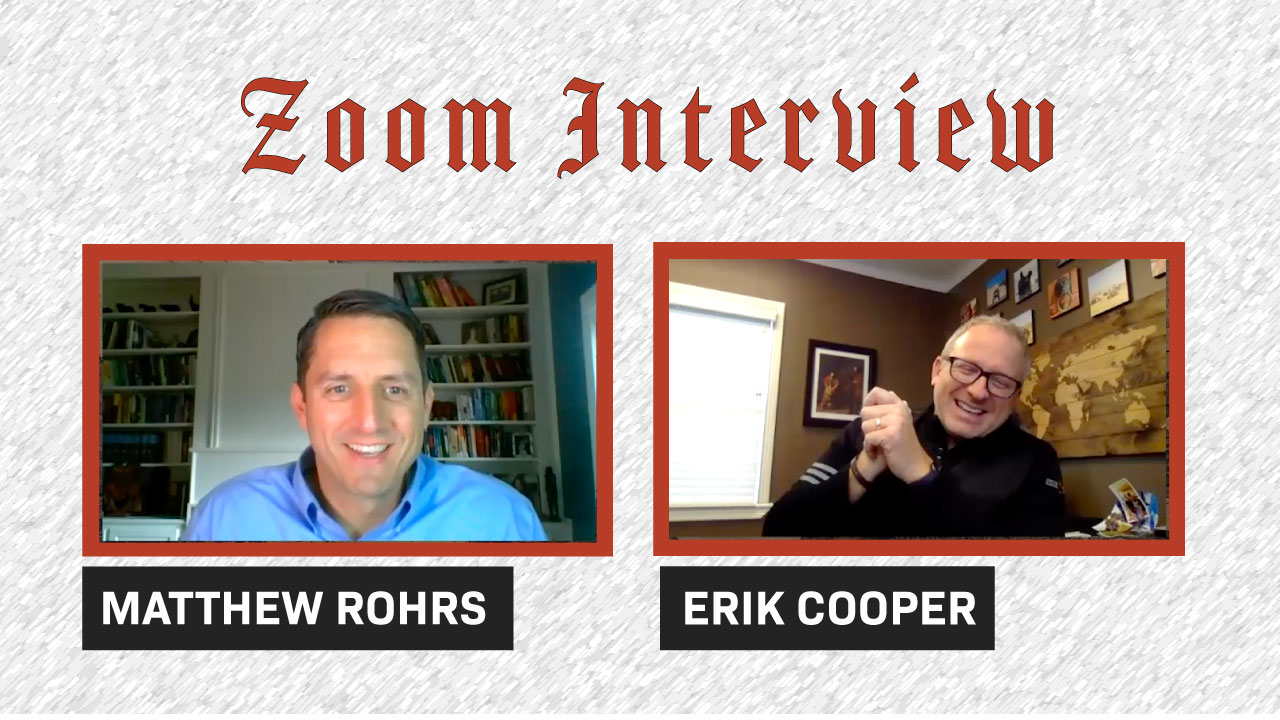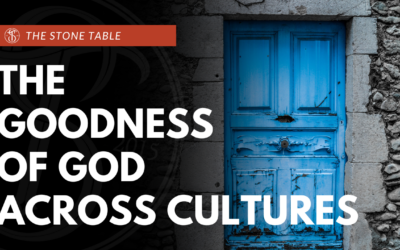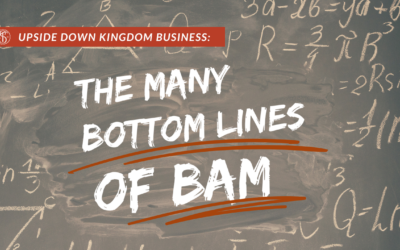Sinapis is a global community blending intensive training with faith-based principles and access to capital. Click to hear from Matthew Rohrs and Erik Cooper discuss the transformational power of business.
Check out www.sinapis.org for more information.
Follow The Stone Table
Instagram:@thestonetable_org
Facebook: The Stone Table
Youtube: The Stone Table
Transcript
So we’re going to talk a little bit about B for T or business for transformation or whatever acronym you want to use business as mission impact investing. Right. There’s a lot of different angles, a lot of different terminologies. But as we wanted to talk about this, there’s nobody. You were the first guy that came to my mind, Matthew. So with what you’re doing with Sinapis and I know we’ve talked to you before in the past and should probably put a link on here to that past interview because it was just fantastic.
But I don’t want to talk a little more broadly today about the transformational aspects of business, your experience. But even from a theology standpoint, you and I are I think we share theology nerd status. I mean, I remember sitting at a coffee shop with you just kind of diving into the.
Yeah, I have no problem calling myself a nerd in that space. But before we hop into those specific things, let’s go back. Can you just review for us, give us just a quick overview of what Sinapis does, because I think it fits the transformational business conversation so well. But just give us a quick overview. Sure.
So Sinapis is the Latin word for mustard seed. So one way that we understand that you can interpret that familiar parable that Jesus taught is that when entrepreneurs have seeds of ideas or a small business that they are seeking to grow, that that can be a visible, tangible, powerful representation of the kingdom of God. And Jesus says something really interesting in the parable that we think ties in with what businesses do when they’re dedicated to him, that the birds of the air come and make nests in the branches.
So when that seed becomes that large plant and the garden, they come and they find rest. And we think that happens every day all over the world as these companies grow and they employ people and those jobs provide dignity and sustain dependence. That’s a really neat way to understand that parable. So what we do at Sinapis is we create entrepreneurial communities in emerging market nations. We build the capacity of entrepreneurs. We connect entrepreneurs and ongoing alumni connections where they can do peer to peer mentorship and they can solve problems together and help one another with hiring.
And then when the time is right, we bring in mentors, coaches and capital providers to help them scale. So the big idea is God has placed remarkable men and women all over the world who have the skills to grow profitable companies for his kingdom. Our job is to be a servant to their potential and the progress that God has planned for them. We absolutely love what you guys do and how many how many alumni do you have now? I mean, it’s a lot.
We’ve worked with over 5,500 emerging market entrepreneurs and we have over a thousand who graduated from programs.
It’s incredible. It’s absolutely incredible. Well, you know, when when when people talk about the marketplace and business, even in Christian circles, I mean, let’s let’s zoom out let’s talk a little bit big picture here. You know, I think a lot of times people think of the and I’m going to date myself here, but the old Gordon Gekko movie, Wall Street greed is good. Capitalism has gotten really a bad rap, it seems to to some extent.
And the broken aspects of capitalism, I think everybody has seen. Right. But I think there’s this idea that the marketplace is just a secular environment, that business is all about greedy people taking things from other people. Right. I mean, but if we really go back to the beginning, if we really go back to Genesis one, Genesis two and then the fall and Genesis three, I mean, we see that God actually created really work.
He created the marketplace. He created these types of transactions. How does that has that resonate with you and how does that play into kind of what you guys think about how do we redeem that?
I guess as far as the church resonates really deeply, though, if I can share a little bit of my personal story. Yeah, I think I really reflect it in my own life for a long time. The struggle that I think a lot of us feel with dualism separate the world into sacred and secular categories. And there’s a lot of discussion around this and the faith and work movement. But I think when I was growing up, I really did conceive along sort of the lines that you described.
Business was often the powerful taking advantage of other extractive was greedy people trying to maximize their opportunities at the expense of others. And the truth is that happens. So I want to acknowledge that really to not do that and to only portray what I do now with my calling, I think would be one sided. Now, interestingly, as much as I think I had a lot of those thoughts swirling in my mind, I studied business in undergrad and I got on an investment management track.
And to be totally candid, I think I was looking for something that would offer me a life of comfort and some level of status. And I wanted people to think, wow, he’s successful. And so I got into that career and I did not have a theological framework aligned with what you just described. I did not have a viewpoint that God had called me into the marketplace, and this was really for the flourishing of other people. And so over time, I really began to wrestle and just say, well, gosh, is this just about helping wealthy people get wealthier?
And of course, that’s possible. But that wasn’t the fullness of what really God had called me to do. And so I had a very segmented view of business, was just a tool to create wealth, to go to things that was really on God’s heart, or it was a place where you could share your faith and both of those things. I felt those. And then I’ll stop and give you an opportunity to respond, I can continue with the story later, but I think that was a really incomplete understanding of what God’s heart for the marketplace is, why he calls people into it.
And I just wasn’t exposed to people who had to fight for me to have a different understanding at that point in my journey.
Yeah, no, I think that’s really good. I mean, I think we understand the marketplace is this this kind of secular, worldly place that Christians go out into and they make some money and then they drag it back into spiritual things. Right. And there’s there’s not truth to the secular aspect of that. We can talk about that a minute. But there is truth, right, that I think God has grace certain people to create financial resources through the marketplace.
Right. I mean, I don’t think there’s anything wrong with that. Right. Or it’s just this secular place that we go into to put a Bible on our desk and pray over our meal at lunch. Right. And it’s missing, though, this aspect and which I think is the real gospel, transformational aspect of business, that the work itself is actually part of the bringing of the kingdom and the transformational aspect of what the marketplace is intended to be.
So, you know, there’s this great quote that I love. I love to put in modern day context, but Martin Luther said, you know, God is milking the cows through the vocation of the milkman. And when I think about business as transformation or the transformational aspects of the marketplace, I think of that often. Right. That really our work is an opportunity. These entrepreneurs that you train up and release in these developing countries, they get to go out not just to make money for themselves, but they make money by serving people.
Right. So, you know, we say here, you know, God is God is housing people through the location of the property manager. I mean, we’re in the housing business here, right? I mean, everyone could say that and look at and shift their work to see it through that lens. I think that’s what I think about when I think about transformational businesses, is is partnering with God in the care and cultivation of his world. I don’t know how that resonates with you.
Yeah, it does, and I think where my mind goes and there’s a lot of different places in the scripture that we can point to, but thinking about how Jesus lived and teaching and he’s proclaiming, but he’s healing and he’s stopping and he’s caring for people. And there’s this seamless, seamless picture of the kingdom coming out through his words and his actions. And I think a legacy of a Greek Western thought is this. Dichotomized view, I mentioned earlier, sacred, secular, physical, spiritual, and it leads us to reduce the gospel to just understand, well, if it’s only about people’s eternal salvation, which of course, is an essential part of it, and I don’t see any level there.
But that doesn’t really square with what Jesus did, what Jesus taught. It doesn’t square with the whole narrative of the Old Testament. Right. Or even like the great commission when he said you go out into all the world and make disciples and baptize them and teach them to obey. Everything I’ve commanded and everything he commanded us was holistic, wasn’t just way we reduce the great commission even to this understanding of it’s just about having people be reconciled in their relationship with God and actually make the kingdom is much more integrated than that.
And what’s exciting about that is for people who are called to the marketplace, are called to any number of different things. That part of my life has value in that part of my life. Is this really great opportunity to show the creativity of God, to create things that matter to people’s real lives and of course, to build relationships that can be redemptive and show God’s love.




